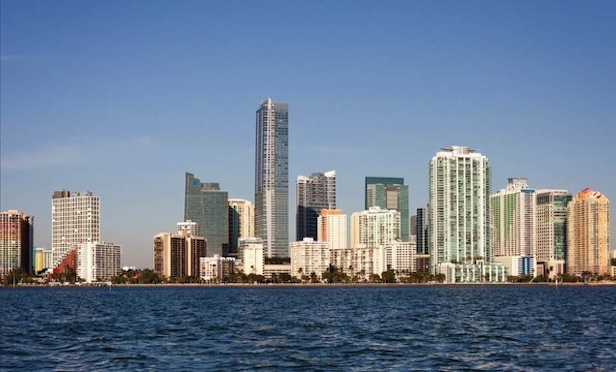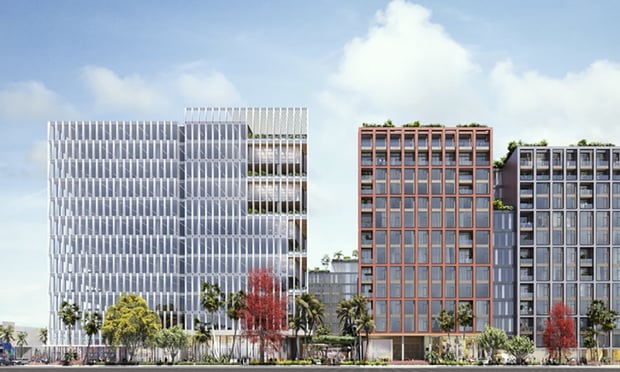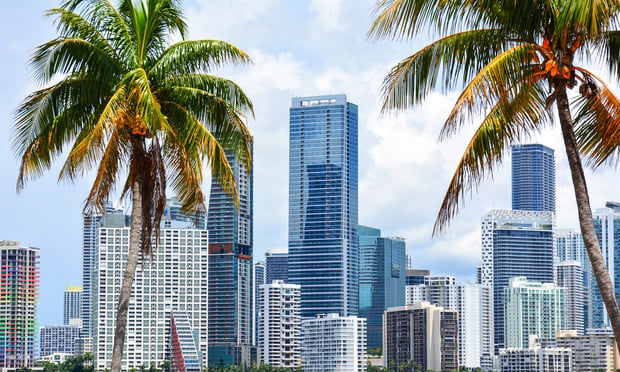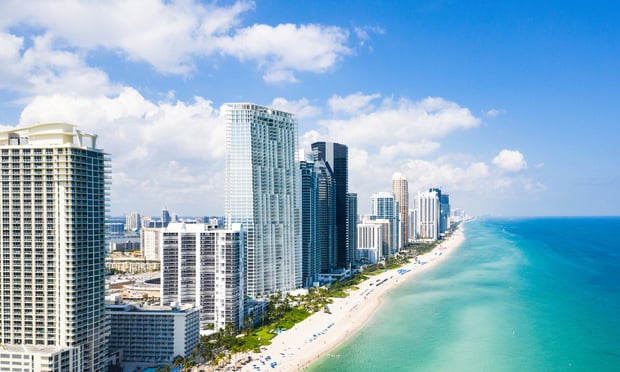 The South Florida food and beverage industry will remain strong thanks to both local consumer and tourism spending.
The South Florida food and beverage industry will remain strong thanks to both local consumer and tourism spending.
MIAMI—The strong appetite of both local residents and tourists for fine dining should help South Florida's restaurant industry grow in spite of the turmoil currently facing the retail sector.
A report released by commercial brokerage CBRE predicts a strong restaurant sector with spending increasing above non-food retail industries. The analysis also indicates that South Florida will remain a prime market for international restaurant expansions into the US.
"The food-and-beverage industry has helped diffuse the claims of the 'retail apocalypse,'" says Brandon Isner, senior research analyst at CBRE. "Developers and landlords continue diversifying their tenant base to include food and beverage operators to drive foot traffic. South Florida has the added benefit of a strong, diverse tourism economy, bringing the region's restaurants an entirely separate source of clientele."
CBRE points to a number of key data points that back up its prediction of strong growth for the restaurant industry. For starters, restaurant spending now accounts for approximately 25% of all retail spending. Food-and-beverage has proven to be resilient to market conditions. Landlords are diversifying their assets with experience-driven retail, largely food and beverage tenants, in hopes of driving foot traffic and attract other retailers in South Florida.
The report also notes that tourism is providing a "turbo boost" of spending for the food and beverage sector in South Florida. CBRE adds that tourism affords the restaurant industry a level of resilience against future "economic hiccups."
More than 44 million people visited South Florida in 2018 and spent an average of $315 per person on food and beverage during their visits, for an estimated total of $8.8 billion. This is more than double the restaurant spending from residents, CBRE notes.
"Restauranteurs, landlords and developers must stay abreast on the constantly changing factors, but consumer preferences and spending habits are among the most important," says CBRE SVP Drew Schaul. "Consumers are influencing every facet of retail real estate, and identifying trends, shifting demographics and emerging urban neighborhoods are key to the success of food and beverage tenants."
In a 2018 report, CBRE stated that not only is Miami the second largest international retailer market in the US, it's 12th among global markets. Many international restaurant groups and chefs have chosen South Florida for their first location within their U.S. expansion strategy.
Based on those lofty rankings, CBRE predicts that South Florida will remain a prime market for international restaurant expansions into the U.S.
The report also predicts that Fort Lauderdale's quiet boom will entice further restaurant expansion and that Palm Beach restaurants will take advantage of the region's economic strength.
Want to continue reading?
Become a Free ALM Digital Reader.
Once you are an ALM Digital Member, you’ll receive:
- Breaking commercial real estate news and analysis, on-site and via our newsletters and custom alerts
- Educational webcasts, white papers, and ebooks from industry thought leaders
- Critical coverage of the property casualty insurance and financial advisory markets on our other ALM sites, PropertyCasualty360 and ThinkAdvisor
Already have an account? Sign In Now
*May exclude premium content© 2025 ALM Global, LLC, All Rights Reserved. Request academic re-use from www.copyright.com. All other uses, submit a request to [email protected]. For more information visit Asset & Logo Licensing.








